#systemic review
Explore tagged Tumblr posts
Text
Looking at a Systematic Review of Environmental Risk Factors for Child Stunting
Child stunting, characterized by impaired growth and development, is a significant public health concern globally. While nutrition plays a crucial role, there are other environmental factors that contribute to this condition. In this blog post, we will delve into the findings of a systematic review conducted by Vilcins et al. (2018) to highlight the key environmental risk factors associated with child stunting. This research sheds light on the multifaceted nature of stunting, beyond nutritional aspects, and provides valuable insights for effective interventions.
Household Air Pollution:
The systematic review by Vilcins et al. emphasizes the impact of household air pollution on child stunting. Exposure to indoor air pollution from sources like solid fuel for cooking and heating, such as biomass or coal, can lead to respiratory infections and chronic inflammation. These conditions can impair a child's growth and development. For instance, in regions where solid fuel is commonly used, such as parts of Africa and Asia, children exposed to high levels of indoor air pollution have an increased risk of stunting.
2. Water, Sanitation, and Hygiene (WASH) Practices:
Inadequate access to clean water and sanitation facilities significantly contribute to child stunting. Vilcins et al. highlight how poor WASH practices, including limited access to clean water for drinking and hygiene, and inadequate sanitation facilities, increase the risk of infectious diseases and nutrient deficiencies. For example, in areas where open defecation is practiced, the risk of stunting is higher due to the increased likelihood of fecal-oral transmission of diseases like diarrhea and intestinal parasites.
3. Environmental Contaminants:
The presence of environmental contaminants, such as heavy metals and pesticides, is associated with child stunting. Exposure to these pollutants, either through contaminated soil, water, or food, can interfere with a child's growth and development. For instance, in agricultural communities where pesticides are extensively used, children may be exposed to these harmful substances, which can impair their cognitive development and contribute to stunting.
4. Poor Housing Conditions:
Inadequate housing conditions, including overcrowding, lack of ventilation, and dampness, are identified as risk factors for child stunting. These conditions increase the likelihood of respiratory infections, which can impact a child's nutritional status and growth. For example, in slum areas with crowded living spaces and insufficient ventilation, children are more susceptible to respiratory illnesses, leading to stunting.
Vilcins et al.'s systematic review highlights the environmental risk factors associated with child stunting beyond nutritional aspects. Household air pollution, poor WASH practices, exposure to environmental contaminants, and inadequate housing conditions all contribute to stunting. Addressing these factors requires comprehensive interventions that improve access to clean energy, promote proper WASH practices, reduce environmental pollution, and enhance housing conditions. By understanding and addressing the environmental risk factors associated with child stunting, policymakers, health professionals, and communities can work together to develop effective strategies for prevention and intervention. It is through targeted actions and investments in improving environmental conditions that we can reduce child stunting rates and ensure healthier futures for children worldwide.
References!
Vilcins, Dwan, Peter D. Sly, and Paul Jagals. "Environmental risk factors associated with child stunting: a systematic review of the literature." Annals of global health 84.4 (2018): 551.
#medical anthropology#medicine#global health#global medicine#child stunting#paediatrics#social determinants#systemic review#anthropology#scientific literacy#environmental factors
2 notes
·
View notes
Text

#politics#us politics#democrats are corrupt#democrats will destroy america#wake up democrats!!#barack hussein obama#bill clinton#clinton crime family#george bush#deportation#mass deportations#lawfare#judicial review#judicial system#judicial ethics#corrupt judges#graft and corruption#tom homan#Instagram
603 notes
·
View notes
Text
Is just me who get a morbid curiosity of reading the full PIDW by Airplane-bro just to see how bad it is?
Like I know it's going to be a shitshow with tons of fan service but like, I want read it just to confirm 👀💦
#also it would be also good if in the emd of the chapter we got a Peerless Cucumber review 🙏#I need to know pls#I wanna know what kinda torture cucumber man was put through to fucking die of ir#svsss#scum villian self saving system#proud immortal demon way#pidw#shang qinghua#shen yuan
274 notes
·
View notes
Text
i was watching the new quinton reviews video and this computer immediately stuck out to me because ??? so i stuck it into MS paint and i've discovered that the computers of mid-late icarly are on a whole other level & i want whatever this OS has going on. it is a gender to me

#quinton reviews#icarly#this is what happens when girls have autism and microsoft paint#i love how it's supposed to be a mac but they just went Well fuck that#got really worried i'd said the wrong version of windows media player for a minute but it's alright it is 11#i was zoomed in on the image so i scrolled over to look at the windows key (see if there was one and if so what style/era) and i just see#this fucking . pear. i have to say i admire that dedication#to making the world's most glorious operating system... with a rainbow pear windows key#i want to know what happens if you press it#does this baby have windows + tab aero peek#hall of fame#1k#yapping
1K notes
·
View notes
Text
Reading papers and stumbled upon a


#Geographic information systems (GIS) and entomological research: A review#from 2010#how many other people has it tripped up#i say things#thesis posting
916 notes
·
View notes
Text
One thing I wish I'd see more of among Ratio fans is some thought about how he views himself as a teacher.
Like yes, of course he refuses to compromise on the quality and rigor of the education he imparts, and he would find it unforgivably unethical to lower his standards in order to pass more students who had not genuinely learned the material. This is core to his character.
However, as someone who is a teacher IRL, I know the absolutely miserable feeling setting that kind of standard can cause. There's the obvious disheartening sense of disappointment ("Are students these days really not capable of doing the work correctly? Is our future in danger, if this is the highest level of understanding our current generation of students can achieve?"), but even worse than that is the self-doubt.
"Is this somehow my fault? Am I not teaching this material in the right ways for the students to learn? Is there something I could have done differently to get through to these students? Would a better teacher have a higher passing rate?"
We know that Ratio does (or at least did) struggle with feeling inferior to the Genius Society, so I think it is also likely, as much as he absolutely will not budge on his academic standards, that he has doubts about his teaching ability as well.
This is the man who wants to educate the entire world to cure the disease of ignorance, and yet only 3% of his actual students are able to get there. How can someone who gets so few of his direct students to a state of enlightenment hope to enlighten the whole universe? If so few students are successfully learning the material of a given class, doesn't that mean the teacher is doing something wrong?Would a better teacher--would a genius, maybe--not be able to impart their knowledge more efficiently and educate even the most challenging of students?
As someone constantly struggling with that balance between keeping academic standards high while also meeting the needs of today's students, I think the passing rates of his courses must affect Dr. Ratio much more deeply than I've seen fans discuss. I think he would question himself harshly over his class success rates, and I think he must be constantly trying to push himself to become the best teacher he possibly can be.
tl;dr: I hope one day the HSR fandom will stop sleeping on the fact that Ratio is an actual practicing professor who probably has astronomical levels of teacher angst. 😂
#honkai star rail#dr. ratio#not to be#ratiorine#in everything I post but#secretly this is just an excuse to imagine Aventurine throwing Ratio a sympathy party#a “Let's eat our feelings" party because the doctor just got his course evals back#and there are some insults on there that would make his ancestors cry#I can just imagine Aventurine reading out the really obnoxious Rate My Professor reviews#in whiny entitled voices#just to squeak a smile out of a gloomy Ratio#but I also really like the idea of Aventurine helping Ratio become a better teacher!!#because he's sharp and a fast learner#but he doesn't have a background in formal/public education#he's not set in the system's ways#he could suggest some really out-of-the-box ideas to help Ratio get through to more students#and be a great sounding board for Ratio's lesson material#brutally honest feedback lol#“Ratio I am in love with you but I still can't listen to you talk about gravitational time dilation for one minute more”#“You're going to HAVE to make this lecture less dry than my martini.”#look let me just enjoy this teacher fantasy for a sec#lol
420 notes
·
View notes
Text

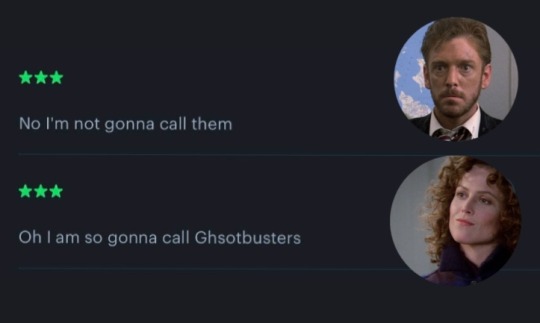
fruit basket
#pretzel's art#ghostbusters#walter peck#peter venkman#i will be drawing. MORE i think#of other characters too i just had to get peck out of my system#thank u sauce for the review screenies LMA#o
247 notes
·
View notes
Text

Yusuke: 120%
Detail and source after the cut...
comms open 🎨


#yusuke#yu yu hakusho#yyh#yyh fanart#yusuke urameshi#fanart#illustration#digital art#art#artists on tumblr#rewatching the fight with toguro at the end of the dark tournament was interesting timing#feeling yusuke's weariness as I'm doing a deep review of how physical abuse and violence affected my developmental process growing up#and how it shapes the nervous system tissues and even bones#the fight itself felt like an initiation by parental figures... father toguro and mother genkai#can growth ever be possible without pain?
77 notes
·
View notes
Video
youtube
The Campaign for the Solar System: The Space war 2178-9999, by Kaydevs, is a space war game that involves managing logistics, trading, building your fleets, and conquering all stations of the others to become the sole ruler of humanity.
#youtube#intro#ttrpg#the campaign for the solar system#space war 2178 - 9999#wargame#review#insanity#space#spaceship
37 notes
·
View notes
Text
I know, I know, the audacity I have barging into Czech Tumblr speaking English... (I have lost the ability to express myself comfortably in my native language) BUT this might come in handy to someone!
It'sssss... ✨ DOCTOR REVIEW ✨ time! (The trans kind. Of the sexologist sort.)
The subject of this review is MuDr R. Mužný (must be one of the top names for someone who can prescribe you T) of Fakultní nemocnice Ostrava. He's a sexologist currently accepting new patients.
My experience: I have only visited him once so far, so I have a concrete idea of his requirements to let you transition and his general attitude, but if something to add comes up in the future, I'll update and reblog the new version. It's also important to mention that I'm an adult transmasc, transfems or minors might have different experiences.
Attitude: The doctor's very young and seems laid-back and very friendly. He was affirming to me, and apologetic for some of the more sexual questions. He assured me that he didn't want to complicate my transition.
He didn't have any comments, derisive or supportive, when I mentioned having identified as non-binary in the past.
He thinks that even non-intersex people can transition. (yes, I was also surprised to learn about sexologists who don't)
He accepted a vague response to his question about sexuality. No need to pretend you're hetero if you aren't with this one.
He didn't seem to be against my ability to transition even though he was made aware I was autistic and had OCD.
Requirements: When making my first appointment, I mentioned to the nurse that I had spoken with a clinical psychologist about transsexuality before, and it led to them wanting a gender-related report from a different professional. I don't know to what extent is that a necessity, or if you can just come without any "recommendation" whatsoever.
Now here's the kicker: Dr. Mužný asks you for an essay (he calls it "životopis") in which you describe your relationship to your gender identity throughout your life, minimal length 3 A4s, written by hand. On top of that, it should include a written testimony from your PARENT. He also offered to invite the parent to come with me next time instead. I reiterate that I am not a minor, I'm in my mid twenties. The parental voice having to basically fact-check you if what you're writing about your childhood is true is, in my opinion, more than demeaning and terrifying. I voiced my disapproval and concern to him, to which he assured me that if the parent seems dismissive, unaccepting or simply transphobic, he won't give their words much weight. So at least there's that.
As for something positive, he doesn't do any violating, archaic physical examinations. (no physical examinations at all, actually) I was not asked to strip down.
The length of the real life test with him is 1 year. When he was answering this question of mine, he seemed to pause and ponder my case, since I came already fully socially transitioned (and had been for more than half a year), so there's a chance that it could be even shorter, if it turns out he takes your initiative into account.
The other doctors he sends you to are, as expected, an endocrinologist, a gynecologist (transmasc special, I don't know if transfems get sent for a "your genitals seem fine health-wise" paper somewhere, too, I'm sorry), but also a geneticist. (He told me that it was to complete a general patient anamnesis, but also to determine whether I was intersex. When I asked whether the result impacted my ability to transition, he said no.)
You may notice I didn't mention a psychiatrist. Neither did he. Whether that was because I already came armed with a paper saying that a clinical psychologist finds me sane enough to make medical decisions, or because he just doesn't do that (or forgot to tell me), I have no idea.
Oh yeah, and be prepared for the auto[insertgender]philia question. He will ask you whether transitioning turns you on and you will say no, because [even if you low-key think being trans is hot], your sexologist is not your friend and could only use it against you.
My conclusion so far: You could probably do worse with a sexologist, just make sure you have a functioning relationship with at least one parent and hope. My opinion might be object to change.
#čumblr#trans#hrt access#sexologist#sexologist review#sexuolog#Ostrava#sexuolog v Ostravě#transition#transition in Czechia#Czechia#czech medical system#recenze na doktora#recenze na sexuologa#healthcare#trans healthcare#azer_posts
56 notes
·
View notes
Text
Mini DID book review: One Of Us Knows: a thriller
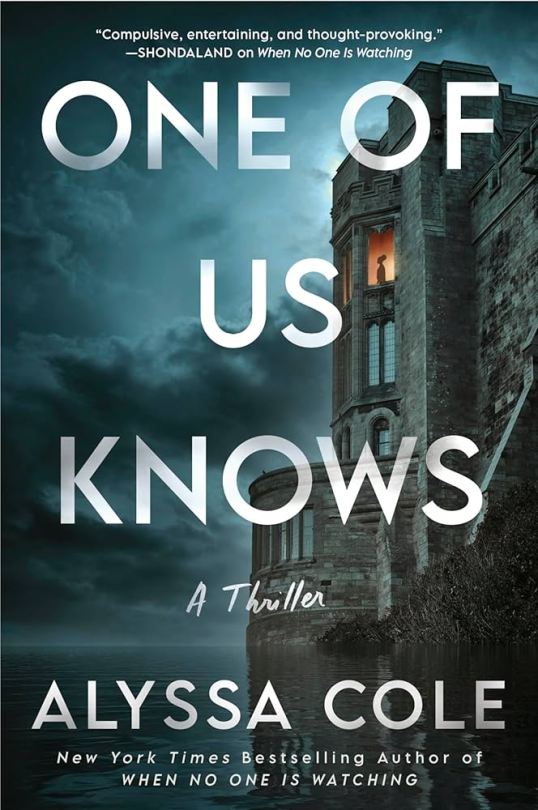
Author: Alyssa Cole
Publication date: 2024
Diagnosis of DID? Yes, the system has known for a while
Fiction of nonfiction: fiction
Is the person with DID portrayed as evil? Complicated but ultimately no; its one of the major plot points
Major trigger warnings:
death (fighting, blood, some gore but its not described much)
implied sexual assault (nothing described)
Self harm
Misogyny(major plot point)
Abelism
Racism (major plot point also)
Stalking
Kidnapping/mishandled foster care
Dormancy of parts (major plot point)
Parts being kidnapped/speculated to be killed off (major plot point)
Rituals taking place (not religious but has to do with everything on this list)
Covid being a thing(major plot point in the first part, lots of anxiety about covid)
Ratings to how I feel personally
Triggering(0 is nothing at all, 10 is could not handle reading this): 4-5 (not a gentle book but not gratuitous
System dynamics(0 is this is bizarrely off, 10 is holy shit this is a book about me): 7-8 (the conflict between parts is very well written, and so is the understanding of how deep the relationships go)
Switching(0 is doesnt work like this, 10 is this is a book about me): 4? (Nearly all of the switches are blackouts)
System communication(0 is never experienced this, 10 is this is a book about me): 8-9 (we talk to eachother like this a lot)
Inner world dynamics(0 is never experienced this, 10 is this is a book about me): 7 (theres a lot of the inner world, like half the chapters happen inside! However the physics of it were a little too realistic at times to what could happen with me, like i dont have to walk or run to get places personally)
Comorbidity with other disorders(mental or physical)(0 is there are none, 10 is i experience all of this): 5 (there is no physical ailments that come with having DID in this book, which isnt a necessity but many people who do have it also have disabilities so it feels bizzare when there are none. Theres anxiety, depression and faint mentions of disordered eating in this book)
Brief thoughts on this book:
The BadDay system(first book ive read where the system has a system name) has been well-established for many years by now, knowing about their DID, communicating with their others for some time.
The host turned persecutor has been dormant for 6 years now, missing out on covid, while the rest of the system had been active online and functioning in lockdown. Now Ken(the persecutor) is back, with the mysterious disapearence of the previous host and caretaker, Della. All eyes are on Ken wondering what the fuck happened and nobody knows how they landed a job as a caretaker of a mysterious castle on an island, that just happens to be the exact same castle from their inner world.
Mystery and thrilling things ensue as Ken goes through the motions of coming out of dormancy and no parts wanting them there, a blossoming romance with an outsider and a complicated romance on the inside too, all tied together neatly with the strange happenings on the island and the trust that owns it.
I don’t really know how to review for a thriller book, because I don’t tend to read thrillers. But the mysteries were mysterious to even me, who can see where plots are going with DID books typically. And the thrills were thrilling. I couldn’t put the book down, I kept wanting to sink in more and more
I was exceptionally pleased that the author didn’t play safe with the DID as some authors tend to when they’re writing something with modern understanding. There wasnt so much shameful secrecy around the disorder, and the questions and impacts were hard-hitting as she delved into things that I’d be worried about posting about myself. Like the dormancies impacting other parts, parts not wanting the host around. Romance and sexuality between parts. The unsavory and the honest, but also the depth of how much each of them mattered in the system and how much they cared for eachother. It was really satisfying to read! The inclusion of how social media effects people with DID nowadays was really nice to include too, and again, I haven’t yet seen any other media to employ the use of system names like how many do in social media now.
I also really really love that the story was just as much the inner world as it was the outer, as most books have the happenings between parts more hidden.. Having the two stories run side by side makes it feel like this characters life is their DID, as it often is for many of us. Idk I’m jazzed about this, this is what I wanted with DID in media. The DID actually mattering as more than a plot device
The only thing I can really fault it on is the constant blackout with switches. But to be fair, this is implied not to be their normal, and ethe events of this book are extremely high-stress situations, so I appreciate that the weight of that is stressed rather than it being another case of an author just not having personal experience enough to know. (She doesnt have the experience to know, but this was a neat way to bridge the gap)
Overall a great book. Not a fluffy one, and since the main plot revolves around the potential of the main character being the DID Killer, inside and out. So please tread carefully if the questioning of such things is hard for you. And also a thriller, so there are thriller things like violence and tension and things outside of a normal slice of life
Would I recommend someone with DID read this? YES! I do feel like this was written with a lot of care for people with DID
#bunnidid reviews#one of us knows#alyssa cole#dissociative identity disorder#did in media#actuallydid#complex dissociative disorder#otherwise specified dissociative disorder#cdd system#did system#cdd media#did media#i just finished this like an hour or two ago pls enjoy my new review style#do u like my new reviewing style? writing out the entirity of the media is what puts me off reviewing#it just snowballed so i could explain myself more and more#and also i hope the relatability scores are okay#obvs theres more aspects to DID than that but those are just what i could come up with on a whime
65 notes
·
View notes
Text

#politics#us politics#democrats are corrupt#democrats will destroy america#wake up democrats!!#judicial ethics#judicial review#judicial system#judiciary#democrat judges
84 notes
·
View notes
Text
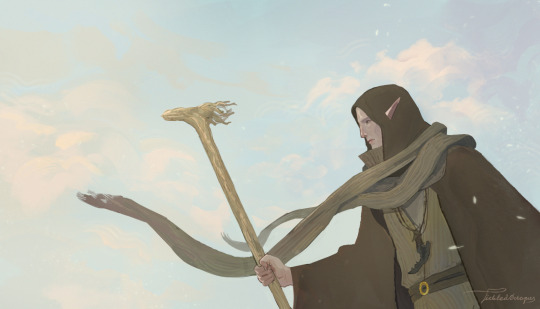
No spoiler personal and honest opinion about Dragon Age the Veilguard
[😀]
Battle is really fun. Even though I love DAO, I’m not typically a fan of tactical combat, and this might be the first DA game where I actually enjoyed the battle.
I like the expanded companion quests. I loved Lucanis' the most.
Semi-realistic comic style works better than I’d expected. The visuals and animations were solid overall, at least for me (still thinking about how Lucanis looked at Rook in that romance scene 👁️👁️). Except for the heavy filters and flashy effects; those were a bit much.
[😐]
Too much repetition. The game recaps constantly, which becomes dull. Like they worried old DA fans won’t remember what just happened a minute ago.
Romance isn’t big compare to previous games. Honestly feels like the weakest romance content of any DA game (well I only remember how much I loved and giggled so much in the old games). Maybe it’s because events in this game unfold so quickly? Just don't expect the same level of content as in DAI. Though, this is just my issue—if you don’t care about romance, it’s fine.
Unfinished story potential. There’s good material here, but it feels half-done. A shame... really.
Choices feel fake. You get three dialogue options, but they’re just slight tone variations of the same line. If you like to playing a jerk in BioWare games, you might be disappointed.
Inconsistent story details. I’m not a lore expert and don’t remember all the characters, but even I noticed some parts didn’t add up well—almost like the writers forgot details from past games too so they just brushed them off. Also removing many choices from earlier games didn’t help; it only made things more questionable.
It’s a fun game that I enjoyed a lot and will replay it just to see Solas again, but do I love it as a DA? I'm not sure.
It’s not about new setting or tone. I was fine with a fresh protag. But now, after finishing this, keeping the Inquisitor as the protag for this end of the Dread Wolf saga would’ve made much more sense to me. I would’ve loved to see the old, ragged Inquisitor raging again like in Trespasser, and give a proper farewell to both the Inquisitor and Solas, whether you swore to save him or not. The writing in this game seems just lacking. In any case, I was just glad to see Solas again and listen to him talking💓 Gareth really nailed it again. The emotion in his voice, I just 😭 I swear Garrus and Solas can send me with their voice alone. Now, I'll just go and sobbing in the corner👍
#i don't usually write reviews but I love Solas and DA so much#and it's been 10 years since DAI so#I just had to get this out of my system#random
67 notes
·
View notes
Text
Before reading SVSSS: haha what a silly goofy novel so funny!!
While reading SVSSS: I have been wronged by humanity. There is torture, bloodshed, and horror. I do not know what has become of my comedy. finally there's a funny coffin scene😄. I am tearing up at the tethered bond between soul(s), my own wailing at the shock every time I turn the page. I wish to go back and never pick this one up, I wish to spoil myself just to know that everything will be alright in the end. There is no way this will work out, I am sure. I am scared. After reading SVSSS: haha what a silly goofy novel so funny!!
#svsss#my rambles are great i swear#scum villain#scumbag self saving system#scumbag system#scum villian self saving system#scumbag villain#mxtx#book review#ish#book recs#!!! seriously go read this right now
135 notes
·
View notes
Text
Ophelia’s Review, Part Two: Thedas, The Dragon Age System
Some things I need to get off my chest.
One. This does not feel like a Dragon Age game.
Two. That doesn’t mean I didn’t like it.
Three. I have a lot of feelings right now but I’ll come back when my brain has re-hydrated itself.
(I finished Veilguard at 10PM on Monday, and wrote this the morning after. And its still true, 5 days later.)
TLDR at the bottom

[Read Part 1 Here]
I do miss the heady blend of power, intrigue, danger, and sex that permeates these events games.

[Photo Cred: Dumped, Drunk & Dalish]
Because Veilguard is missing all of that.
Listen, it’s good. Great even. I loved it. Cried. Laughed. Dropped my controller and paced around the room for 5 minutes in anger and angst. Drank a bottle of wine in the bathtub after Solavellan’s happy ending (and my Rooks sad one). But this is not a Dragon Age game.
It is Dragon Age ADJACENT. Similar of course. The backbone is there. The direction, the vector, is there. But the execution…
Dragon Age (Origins through Inquisition) for me, was A Song of Ice and Fire. I love that series.
It was deep. It was harsh. It was MEAN. If offered me hope and then snatched it away. The world-building, the lore crafting, was intense and deep and required attention and critical thought. The characters were nuanced and troubled and real.
Veilguard, for me, is Eragon.
I also loved that series. It is pure and good and takes me on a journey through a fantastical land of dragons and heroes, of good versus evil, of mysteries and magic. But, it is juvenile. Its simple. It doesn’t try to be anything other than it is. Veilguard, is shallow.
The essence is there, beneath the surface Veil, pressing and bursting at the seams to escape, but is being held back by a gentrification of Thedas, the Tranquility of the Dragon Age world, if you would.
The Lore

I don’t want to go into to much about it (its going to be its own post, I think), but I love the lore of Dragon Age. I love learning about it. I love the questions, the pervasive theme that history is only as true as the historians who write it; things get lost, muddled, confused through and over time. And Veilguard, kind of feels like I’m being spoonfed? Like I’m a baby.
I think EA did BioWare a disservice by making this game for new players, instead of assuming that RPG players have the intelligence and wherewithal to comprehend at least a little bit of lore and history, or at the very least, introduce a cannon world state. You can have your cake and eat it to, but, as Veilguard shows, it diminishes the quality of the cake as a whole.
This game is an Action RPG. This is a game about combat. For the record, the first, second, third, 17th time I saw my Rook in their Takedown Animation, I said, out loud, ‘Dragon Age, G.O.T.Y.’ I swore at my inability to time dodges properly, I planned and schemed with primers and detonators and damage types. This is very reminiscent of The Witcher and Assassins Creed, for me (I have not played a ton of games, im sure there are others more like it). It was fun, it was challenging. But. This is not Dragon Age. Its Something Else™.
Dragon Age: Dark Origins
When people say Dragon Age is a dark game, they’re not talking about the gameplay, or the graphics, or the art direction.
Dragon Age deals with dark subject matter. Slavery. Racism. Religion. Politics. Power dynamics. Mages versus Templars. Addiction. Death. War. An unstoppable contagion that deals death indiscriminately. THAT’S what makes Dragon Age Dark.
These stories are deep. They’re hard. And yeah, they weren’t always handled properly (lookin’ at you, Gaider), but doing something wrong… looks like it might actually be better than pretending it doesn’t exist.

As a Sollavellan, I’m unspeakably glad they didn’t yassify Solas. He is still an unlikable character who has committed unspeakable war crimes. And we got a redemption arc that did not end in death. That’s a win for me.
But they kept his darkness at the expense of lightening literally EVERYTHING ELSE in Thedas.
What the fuck happened to Zevran’s Crows? I got the Puss-in-Boots-Found-Family Assassin Agency.
Where are the slaves in Minrathous? Where’s the trip to the upper city, gilded and clean, so we can compare it to the slums of Dock Town (which was not bad at all). Where is the “Rescue the Rabbits” Quest? Tevene Politics boils down to Dorian or Mave, “bad” or “good,” change from within, or power to the people.
The whole Qunari are just Bad™ now? The Antaam warriors turned into… what the fuck is even that? You know the advertising theory where women’s bodies are shown but not their heads or faces? This feels like that. Giant Grey Muscular Powerful Bodies with NoFace. THAT’S the Antaam? The Tamassrins really eliminate every embodiment of individuality from them? They’re just Storm Troopers?
And ‘Thal’enaste, what a lost plot thread to not have Lace and Solas meet in the deep roads, or Kal-Sharok, or fucking anywhere. Instead, you give her one little blurb of “companion banter.” Weak.
Where’s the racism towards the Elves? What happened to that? What happened to Dark Thedas? Oh, its actually all in the South, and thats destroyed now (lets put a pin in that for a minute).
The Companions

I have written and re-written this section 3 times. Its too long. I don’t need to mention them all. How to summarize them.
If you read my part 1, you’ll remember how I fell in love with Dragon Age 2, years after its release (after playing Inquisition, in fact), and how I fucking hard I fell for those very real, very troubled, very nuanced characters.
Anders and his quest for freedom, Fenris and his quest for vengeance. Merrill and her quest for knowledge, Isabella and her quest for… other cultures relics, I guess?
I hated the graphics in 2. It was the characters that carried that game. I don’t know how BioWare wrote them, but they failed to do that in VG.
My favourite character in Inquisition? Surprisingly, its not Solas. Its not even Cole, or the Iron Bull, or Dorian.
Its Cassandra.
I love her. Her story is SO complex. Her devotion to the Seekers, to the Andrastian Faith, is so pure, yet it does not impede her friendship with a Dalish elf who believes in gods that she does not. It does not stop her form forming close bonds with other people from different backgrounds, and although she is fearless in calling out the darkness in her own faith, its sins and its rot, she admits to her Herald that she is envious of the Heralds conviction.
Which character in Veilguard has that nuance?
The necromancer afraid of death? The Elvhen Engineer with ADHD? The literal Demon of Vyantium Puss-In-Boots? The smirking detective? The questioning Qunari? Or the gruff monster daddy?
Listen. I read trash. Smut, romantasy... I read objectively bad literature, for fun, all the time. And, I have a fantastic imagination. It is my own personal fleshing out of theses characters that saved me in this game.
But I should not have had to do that.
The Keep
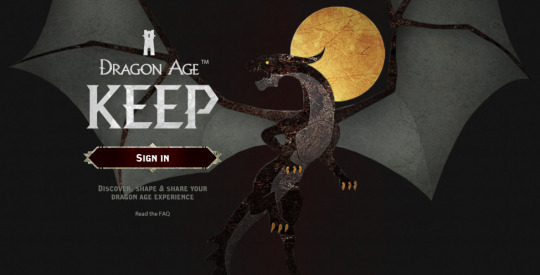
I cannot explain to you, in words, how important those one-off codices and cameos are.
(Don’tThinkAboutIsabela Don’tThinkAboutIsabela Don’tThinkAboutIsabela).
*Grimaces* Okay.
I can speak no more about this. I am already writing a “Keep” DLC for Veilguard.
I would have rather lived in your world state than this abomination. Which leads me to…
‘The Soft Reboot’

So. The South is Gone. That’s the answer. The Hero of Ferelden. Hawke and their siblings. Everything is wiped clean, just as EA asked. All of the South, turned to the Hissings Wastes and the Anderfels, because of the Blight and the hubris of the Gods. What a tragedy. DA5 looks likes its overseas. Cool.
You know what would have been a better reboot?
Spite, taking over Lucanis’ body, walking through the Ossuary, or the catacombs of Minrathous, explaining to Rook how the heavy emotions of People manifest in the fade. The birth of a spirit. Or a demon.
Taash, meeting a spirit face to face in Arlathan, recoiling in disgust, until they help the spirit on its journey, and Taash begins to question their whole worldview surrounding demons. I- I mean spirits.
Emmerich, taking Rook on a lecture-walk through the fade, meeting spirits, solving puzzles, ‘you know, its not so bad in here, what’s the big deal?’
Bellara, instead of discovering Cyrian only to lose him, meets the demon formed of his death, and how to help him back into a spirit.
Neve, following a trail of wisps in the fade, learning things, memories, feelings, songs. Neve, reveling in the pure beauty of the wisps, until they lead her to Vir Dirthara, and her eyes grow wide, what is this place?
Davrin and Assan, after hard training in the High Anderfels, take a break, and while Rook and Davrin flirt, or joke, Assan finds a long string, and begins to play, the string growing and lengthening and thickening until a soft, feminine whisper fills the air, I Am So Sorry… And Rook and Davrin meet a strange spirit, a perfect combination of protection and regret, and they help her find her way home.
Harding, palms flat on the stone, pushing, working, threading her magic into a titan, tilting her face up to Rook, eyes shining blue, speaking in a thousand voices at once, let me show you what was lost, and for a millisecond, we FEEL Isatunoll.
The Dwarvhen was tranquil’d from their Memories, but the Elvhen were tranquil’d from the Fade.
And when Solas turns from Rook in Minrathous, I am sorry for this final betrayal, he is puzzled at the lack of retaliation, and turns to see the Veilguard, standing behind Rook, eyes locked on the giant eye-shaped rift in the sky.
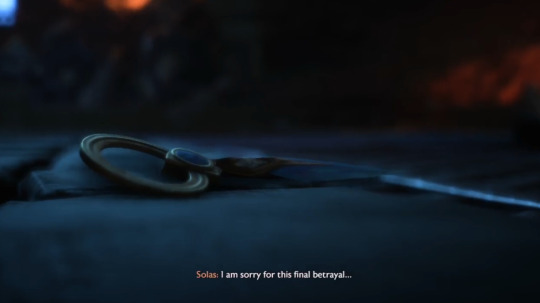
Why are you not stopping me? He asks the group of misfits.
And Rook answers, I can admit when I was wrong. Tear it the fuck down.

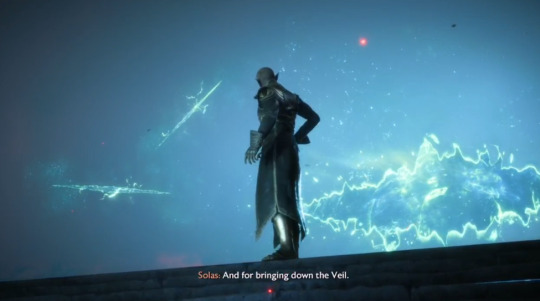
And Solas, battered, bruised, and bloody, smiles, brandishes his ritual dagger with a flashy flip, banishes the blight, and tears down the Veil.
When I learned there were only going to be 3 choices carried over from the rest of the series into Veilguard, I tagged my complaint posts with something.
#You Cannot Dangle A Carrot In Front Of Me For 10 Years And Then Not Be Surprised At My Anger In Discovering It Was A Painted Dowel
Let me reiterate. I enjoyed this game. It was fun for me. I’m in the middle of my second playthrough and am planning a third, and a fourth. But this is NOT a Dragon Age game.
This is an EA game. And its good. But it could have been everything.
Bellanaris.
TLDR;

How torn I feel; lobotomized, rendered tranquil, separated from the memories, lore, and spirits, of the old Dragon Age, while still, like the Veilguard, wanting this world to endure.
Var lath vir suledin, BioWare.
For now.
#dragon age#Dragon Age Critical#BioWare Critical#But You Cant Dangle A Carrot In Front Of Me For 10 Years And Then Not Be Surprised When Im Mad At Discovering It Was A Painted Dowel#The Tranquility of The Dragon Age System#Thedas Gentrified#Dragon Age Reviews#Ophelia Reviews#Veilguard Reviews#Veilguard Spoilers#DATV Spoilers#dragon age the veilguard#dragon age veilguard#da4#datv#Long Post#Certified Long Post
68 notes
·
View notes
Text
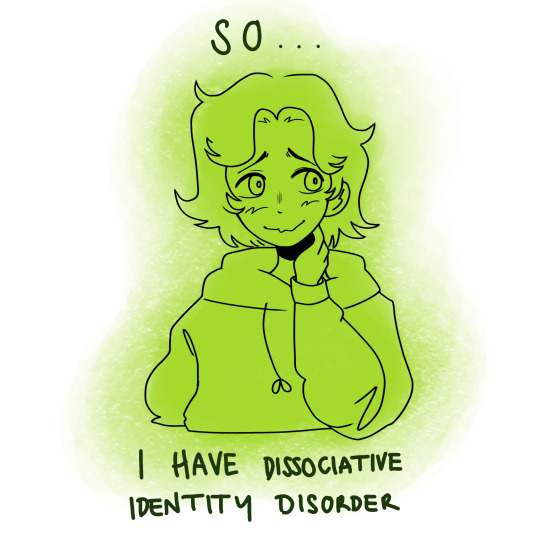
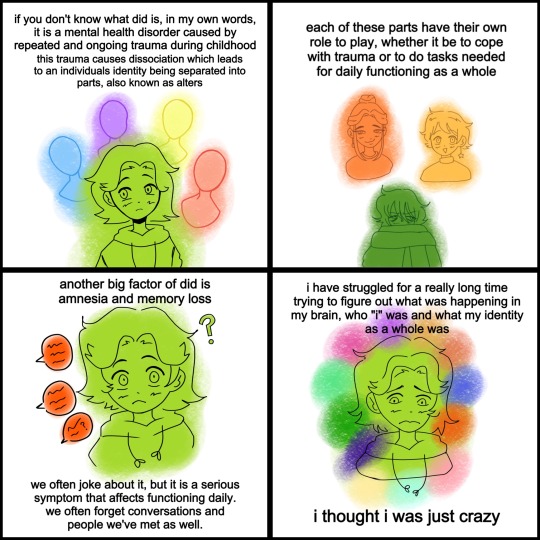
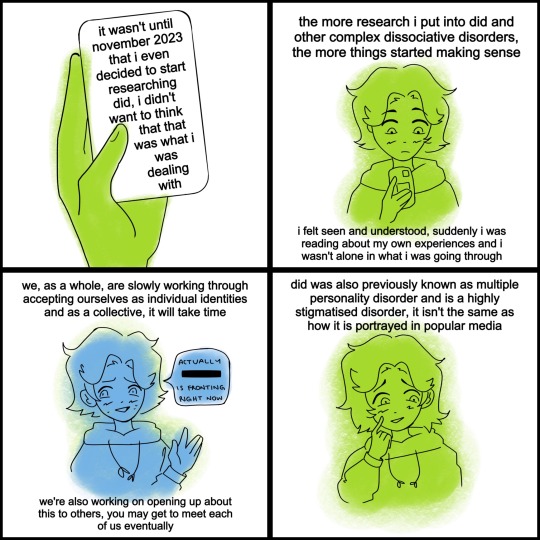
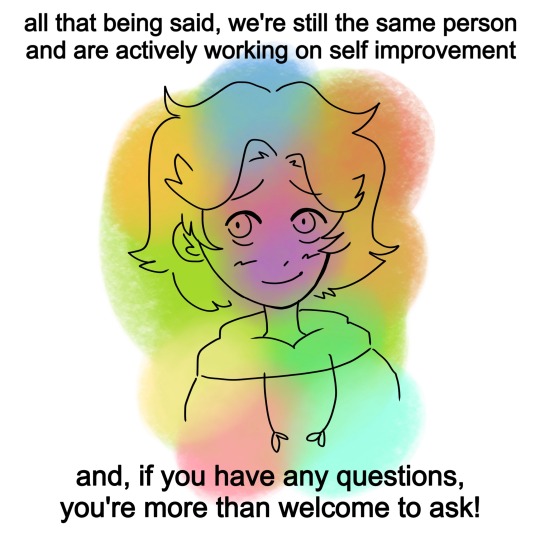
i have completed the comic to come out as a system to my friends for now!
if any fellow systems have anything you think i should add/change lmk!! advice would be greatly appreciated :3
#❇️ fizzy#i hope what i wrote made sense#will have an in sys review also#when these bitches decide to talk to me#did osdd#did system#dissociative system#osddid#plural system#pluralgang#system things#traumagenic system#actually did#did art#traumagenic did#did community
193 notes
·
View notes